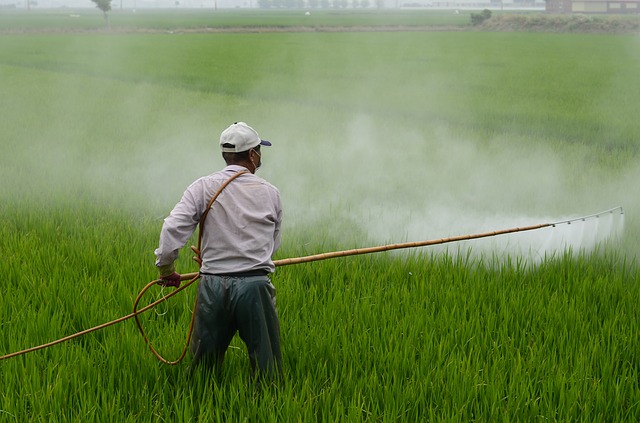(Article Medically Reviewed by Dr. Zac Hyde M.D)
While we might not often consider it, penis enlargement is actually a two-pronged process.
After all, not only do we need to embrace techniques, exercises, and supplements that help grow the penis.
But we must also avoid chemicals that cause penis atrophy which will have a negative effect on growth.
In this article…
We’re going to discuss several chemicals that are toxic to the penis while providing you with a guide on how to avoid the devastating effects of genital atrophy.
First Things First: What is Penis Atrophy?

The penis is a truly fantastic organ. Perhaps the most primary reason for this is that it is specifically designed to grow.
Through countless articles we’ve already detailed the many ways that you can increase your penis’s ability to grow through exercise, supplements, and more.
However, what can grow can also shrink.
When this happens, it is often due to a medical condition known as “atrophy.”
Any organ can suffer from atrophy, which is primarily defined as a “loss of healthy tissue and function due to a prolonged period of disuse.”
When we speak of atrophy affecting the penis or testicles…
We’re frequently talking about erectile issues which can arise from a number of factors, including:
- Stress
- Peyronie’s Disease,
- Sports injuries
- Frost exposure
- Obesity
- Low testosterone
- Smoking
- Aging
But there’s more contributing to penile and testicular atrophy than just the items listed above.
To make matters worse, many of these factors are quite common, and sometimes even difficult to avoid.
Below, we’ll take a closer look at how your penis size can be negatively affected by the chemicals in your environment.
Chemicals In Plastic Cause Penile Atrophy

Our evolution from a hunter-gatherer society into a modern, technology-driven one has not been without its dangers.
Indeed, in many cases, our bodies are yet to develop resistances to the very things we’ve designed to make our lives “easier.”
And just as fast food and trans fats are sure to throw your metabolism a modern curveball…
Something as simple and common as plastic might actually be shrinking your manhood.
We often don’t think of plastic as containing toxic chemicals, but they do.
In fact, everything from coal and natural gas to salt, cellulose, and crude oil is required to make the millions of tons of plastic we go through every year.
And that’s to say nothing of the chemicals used in lining containers, producing caps, and more.
According to a study from the University of Melbourne, the rise in penis birth defects (which have doubled in recent years) can be primarily traced to the use of plastics, parabens, phthalates, and BPA.
Among the many troubling connections made between these chemicals and birth defects were the following:
- An increased frequency of hypospadia, where the opening of the urethra is on the underside of the penis rather than the tip.
- A shortening of the distance between the penis and the anus.
- Smaller overall penis size (particularly with prenatal exposure)
Of course, the problems caused by plastics aren’t just present in the young or the unborn.
Indeed, research continually demonstrates that exposure to these chemicals is a main contributor to sexual dysfunction issues in men of all ages.
And since many of these damaging chemicals can leak out of containers into the food we eat, it can be difficult to avoid them completely.
Indeed, some 90% of bottled water contains plastics, as do many packaged foods for both babies and adults.
If this weren’t scary enough…
The growing issue with plastic disposal is causing particles of Microplastics that reduce testosterone to become present in our food sources, including chickens, fish, and even fruits and veggies.
Bisphenol A (BPA) And Genital Atrophy

In the last section, we briefly touched on a chemical called BPA.
This is an abbreviation for Bisphenol A, a chemical used in industrial processing that is commonly found in polycarbonate plastics.
If you didn’t know, polycarbonates are most commonly used in the production of food and beverage storage containers.
In recent years, BPA has fallen under intense scrutiny for potentially causing health problems, leading to some countries (Canada, Belgium, Denmark, and more) to ban its use completely.
What health problems?
Well, for starters, one study found that workers who were exposed to high levels of BPA were between four and seven times more likely to report issues with sexual function than those with no exposure at all.
These included erectile dysfunction, low sex drive, and a reduced satisfaction with their sex lives.
In some cases, men reported having problems ejaculating or a reduced quantity of ejaculate when they did.
And while it’s worth noting that these studies are focused directly on workers who handle BPA in an industrial setting, studies are now beginning to look at the effect BPA exposure has on consumers.
By this, I mean men like you and me who come into contact with low levels of BPA every day when we consume certain products.
Unfortunately, the results of these studies are still a few years off.
That said, the fact that so many countries have already acted to curb BPA use should serve as a fair warning to begin considering our own exposure to the chemical.
Indeed, the results of various animal tests seem to supports detrimental link between BPA and male reproductive function, testicular cell health and more.
Knowing this, it hardly seems alarmist to say that cutting BPA from your life is integral to keeping your sex organs healthy and operational.
Chemicals In Pesticides Atrophy the Penis and Testicles

Of the traits we men are prone to, one of the worst is our inherent dismissal of products that boast organic, all-natural, or environmentally-friendly certifications.
For whatever reason, it just doesn’t feel “manly” to put so much emphasis on what we put into our bodies.
Well, how manly is a shrunken, weak penis?
Because that’s exactly what such behavior might get you.
You see, pesticides have been inexorably linked to issues with erectile function, infertility, penile atrophy, and testicular atrophy.
And these aren’t just the pesticides that major companies use on the fruits and vegetables we eat, but those that we use to kill weeds and protect our flowers and houseplants.
Perhaps the most dangerous ingredient of all is acetamiprid, a powerful insecticide that farmers use to protect against aphids and other crop-destroying insects.
Still, that isn’t to say that any pesticide is 100% safe.
And when you consider our increasing dependence on foreign and / or mass-produced food sources, it might be neigh impossible to avoid these chemicals entirely.
But what are the overall effects of these chemicals?
- Fertility Issues – Though widely underreported, male fertility is actually declining every single year. And the smoking gun points directly at the heavy metals, chemicals, and pesticides present in our environment.
- Testicular Problems – Studies are reporting increased fertility problems from shrunken or otherwise atrophied testicles. This has been linked to volatile organic solvents, chemical dusts, pesticides, and other antiandrogenic pollutants that inhibit endocrine activity in males.
- Delayed Sexual Development – Research into the effects of specific pesticides have found some interesting links between the delayed onset of puberty in laboratory animals. This was frequently accompanied by decreased sperm production and lower levels of testosterone.
Perhaps the most well-known and dangerous example of a pesticide contributing to penis issues is Monsanto’s Roundup.
First introduced in 1974, this powerful chemical was specifically developed to fill the market gap created by the banning of DDT.
Its popularity further surged in the late 1990s, when Monsanto engineered seeds that could tolerate higher doses of the product, meaning fewer weeds, better crop yields, and – of course – more sales of Roundup.
Looking at over 20 years of data, we can now start to document the effects that Roundup’s use has had on humans.
And this is no conspiracy theory either.
Monsanto has already been found guilty of falsifying reports regarding the use of the product’s main component, glyphosate, and the potential danger it poses to humans.
These dangers include:
- Increased instances of ADHD due to thyroid disruption
- Increased instances of Alzheimer’s Disease due to neural cell death
- Increased rates of birth defects, including sexual birth effects like hypospadias (the urethra hole issue mentioned above), and the development of a micropenis.
- Increased rates of cancer, chronic kidney disease, heart disease, bowel disease, and even ALS and Multiple Sclerosis.
In 2016, Monsanto was acquired by the Bayer corporation.
Not long after, they were forced to pay out millions in settlements due to various health-related lawsuits.
The kicker?
Roundup continues to be sold and used, glyphosate included, as one of the most popular herbicides in the world.
Nonstick Cookware Causes Penile Atrophy

Chemicals found in nonstick cookware, especially those used in the manufacturing of Teflon, have been linked to health concerns over the years.
One of the most alarming potential risks is the impact these chemicals might have on reproductive health.
Nonstick cookware often contains substances like perfluorooctanoic acid (PFOA), which is part of a group of chemicals known as perfluoroalkyl substances (PFAS).
These toxic agents, while great at preventing food from sticking, have raised red flags because they can accumulate in the body over time.
Studies suggest that PFAS chemicals disrupt hormone levels and can interfere with the endocrine system, which regulates vital body functions, including sexual health.
There’s growing concern that prolonged exposure to these chemicals might contribute to a range of reproductive issues.
In particular, animal studies have shown that PFAS exposure can lead to reduced sperm counts and may even cause testicular damage.
This disruption in male reproductive health has led to a possible link between these chemicals and conditions like penile atrophy, where the penis may shrink or lose function due to hormonal imbalances.
While the exact mechanisms are still being studied, the evidence suggests that PFAS chemicals can have far-reaching effects, potentially reducing testosterone levels and impacting blood flow, both of which are critical for healthy erectile function.
This makes the use of nonstick cookware, especially those made with older formulations of Teflon, a health concern for men, especially when exposure is frequent over long periods.
In summary, while nonstick cookware can make cooking easier, the risks associated with PFAS exposure should not be overlooked.
For those concerned about their health, switching to safer alternatives like stainless steel or ceramic-coated cookware may be a good option.
Reference: Agency for Toxic Substances and Disease Registry (ATSDR). (2021). “Toxicological Profile for Perfluoroalkyls.”
Chemicals That Cause Penis and Testicular Atrophy-Conclusion:
If you take one thing away from this article, I hope it’s that many of the world’s biggest businesses do not operate with your health in mind.
Moreover, it may be five, ten, or even 20 years before we figure out what effects the ingredients they use in their products might have on our bodies.
This means it’s possible for products you use every day to have a devastating effect on your health while a team of board members somewhere does their best to hide that from you.
So, when it comes to penis enlargement or even general penis health…
We need to be aware of chemicals that might cause atrophy or damage to our reproductive system.
And this includes some of the chemicals prescribed by doctors.
The more we can eliminate such products from our lives, the better.
And while complete avoidance might not always be possible, any reduction in exposure to plastics, BPA, and pesticides could have a profound effect on your sexual health.
